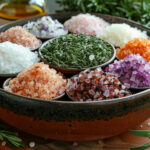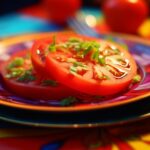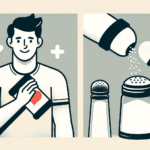A new study has found a potential link between high salt intake, dementia, and hypertension. The study suggests that excessive salt consumption can lead to an accumulation of a protein called tau in the brain. The latter links to the development of dementia. The conclusion is clear: salty foods worsen hypertension.
Researchers conducted experiments on mice and found that a high-salt diet led to an increase in tau levels in the brain, as well as higher blood pressure. The study also revealed that reducing salt intake in the mice resulted in a decrease in tau levels and improved cognitive function.
The researchers tested the findings of the study on mice. However, they believe that the findings could have implications for humans as well. Salty foods & hypertension: high salt intake is a known risk factor for hypertension. This study provides a potential mechanism for how salt may contribute to the development of dementia. However, It is important to note that this study does not prove a direct causal relationship between salt intake, dementia, and hypertension in humans.
National nutrition agencies around the world recommend to reduce salt intake as a way to lower blood pressure and reduce the risk of cardiovascular disease. This study suggests that it may also have potential benefits for brain health and reducing the risk of dementia.
Five Most Salty US Foods Linked To Hypertension
The most popular salty foods in the United States include a variety of items often found in American diets:
- Processed Meats: These are a primary source of sodium in the American diet. Examples include deli meats, sausages, and bacon.
- Pizza and Pasta Sauces: These often contain high levels of sodium, particularly in ready-made or processed varieties.
- Bread: Certain types of bread, such as bagels and pita, can have high sodium content, with some bagels containing almost 500 milligrams of salt.
- Soup: Canned soups are typically high in salt. Many people opt to make homemade soup or choose low-sodium options to reduce their intake.
- Salt Seasonings: Common table salt and seasonings high in sodium. Try alternatives like herbs and spices. Use them for flavoring without adding sodium.




